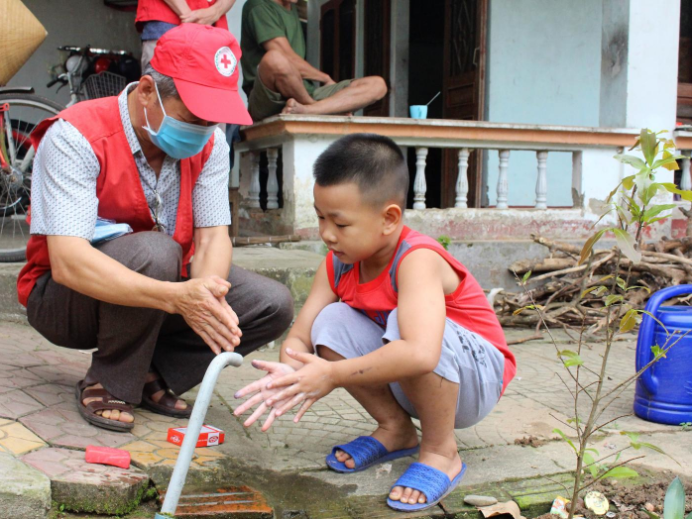
ACCORDING to child-focused aid charity, World Vision Ireland, the Covid-19 pandemic requires immediate global action.
Niall McLoughlin, CEO of World Vision Ireland, said, “if we don’t treat the Covid-19 pandemic at a Global level, it will be far more difficult to treat at a National level.”
World Vision aims to reach 11 million people with their Covid-19 response across 17 priority countries, including 5.5 million children and 5.5 million women and girls.
The charity said that children in extreme poverty are living where health facilities are poorly equipped, lack isolation facilities and intensive care and respiratory equipment.
Millions of refugees and displaced communities living in refugee camps often live in large, overcrowded, unhygienic areas, with minimal access to medical care.
“Our worst nightmare is the Covid-19 virus taking hold in these conditions,” Niall McLoughlin said, “Because it will spread rapidly and there won’t be sufficient resources or supplied to flatten the curve.”
Niall emphasized that children in extreme poverty are always the most vulnerable in a crisis. The charity said that when children living in extreme poverty lose loved ones, they risk ending up in unsafe situations.
Oftentimes, they must engage in child labour to survive; see their families sink into poverty; or suffer isolation and psychological harm.
World Vision has launched a global response to tackle the Covid-19 pandemic. The charity’s three programming priorities are: promoting preventative measures in the developing world; supporting health systems and workers; supporting children made vulnerable by Covid-19.
“We are deeply concerned about the impact the crisis could have on the most vulnerable children around the world.” Niall said.
“This includes children whose families have serious underlying health conditions – some of whom are already battling tuberculosis, pneumonia, malaria, HIV and AIDS, in communities with high rates of malnutrition.”he added.
Globally, World Vision has experience and expertise helping communities prepare and respond to virus outbreaks.
The charity has previously worked to combat the spread of Ebola in Africa and Zika in Latin American; and has educated thousands of communities in the developing world about the importance of hand hygiene, basic health care, and disease control.
“We have responded immediately in the past to this kind of outbreak, and we’re responding again to this one.” Niall said. “Responding to the coronavirus is going to take the same type of experience, expertise and international reach.”
The countries World Vision is issuing programme responses to Covid-19 include Syria, Afghanistan, Bangladesh, Brazil, DR Congo, Haiti, India, Indonesia, Iraq, Kenya, Lebanon, Mainland China, Mongolia, Philippines, Senegal, South Africa, and Thailand.
World Vision is calling on the Irish public to donate whatever they can to help the world’s most vulnerable children by going to www.worldvision.ie










